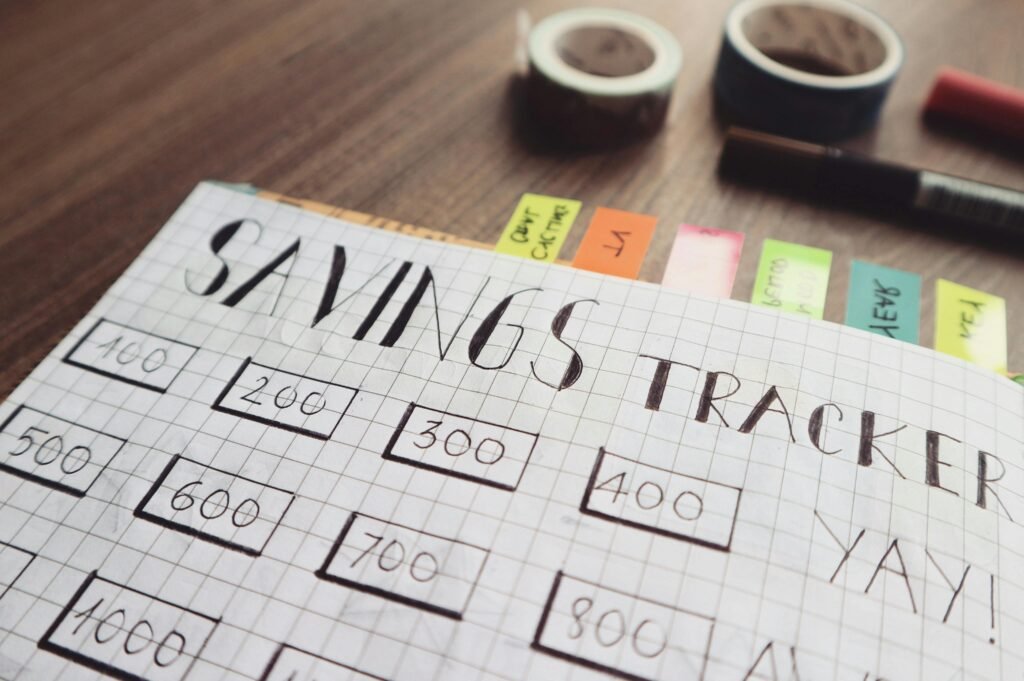Let’s be real — “stick to a budget” sounds great in theory… until you’re standing in Target with a cart full of “just one more thing.” Been there. But here’s the truth: budgeting isn’t about depriving yourself or living off instant noodles. It’s about telling your money where to go before it ghosts you like that one situationship.
Whether you’re a broke student, a busy single mom, or just someone who’s tired of saying “next month I’ll get it together,” learning how to stick to a budget can seriously change your life. It puts you in control, helps you spend smarter, and gives you peace of mind (yes, even with surprise expenses).
So if budgeting has always felt confusing or impossible — this guide will show you how to stick to a budget in a way that actually works for you. No guilt, no stress, just smart, sustainable steps forward.
1. Know Your Why (a real one, not just “I should”)
Let’s be honest: guilt is a trash motivator. If your reason for budgeting is just “I guess I should be responsible,” you’ll abandon your budget the second temptation hits (hello, online sales and last-minute takeout). To stick to a budget long-term, you need a real, emotional why — something that lights a fire under you when discipline starts to fade.
So ask yourself: What would a stable, healthy financial life give you?
- The ability to finally move out of your parents’ place?
- A stress-free vacation with your besties?
- Freedom to quit a job you hate?
- A cozy apartment that feels like yours?
Dig into your personal values and dreams. Make your “why” something you actually care about — not just something you think you should care about. And once you have it, write it down. Put it on your mirror, your phone lock screen, your planner — wherever you’ll see it when you’re tempted to go rogue.
When you’re trying to stick to a budget, your “why” becomes your anchor. It’s the difference between “ugh, I can’t buy this” and “I’m choosing not to — because my future self deserves better.”
2. Pick a Budgeting Method That Actually Works for You
You don’t have to copy finance bros on TikTok who live on black coffee and spreadsheets. Budgeting isn’t one-size-fits-all — it’s about finding a method that fits you, your brain, and your lifestyle. If you want to stick to a budget, it needs to feel doable, not draining.
Here are three beginner-friendly methods that won’t overwhelm you:
- The 50/30/20 Rule: This one’s super popular for a reason. It’s simple:
→ 50% of your income goes to needs (like rent, groceries, bills)
→ 30% goes to wants (yes, that includes fun stuff)
→ 20% goes to savings or debt repayment
Perfect if you want structure without micromanaging every dollar. - Zero-Based Budget: You give every single dollar a job. That means your income minus your expenses equals zero — nothing is left unassigned. It’s great for people who want to be super intentional with their money.
- Cash Envelope Method: Ideal if you’re a visual learner or tend to overspend with cards. You set spending limits using physical cash or even digital “envelopes” through budgeting apps. Once the money’s gone, it’s gone — and that makes you way more mindful.
💡 Want to go deeper? Check out this Beginner’s Guide to Budgeting on Amazon — it’s an easy, non-intimidating read that breaks it all down in plain English.
No matter which method you try, the key is consistency. Start with one that sounds least stressful and adjust as you go. Budgeting is a habit — not a punishment — and choosing the right method makes it way easier to stick to a budget long term.
3. Make It Visual — Because Numbers Alone Are Boring
plain spreadsheets and boring finance apps don’t exactly spark joy. If you want to stick to a budget, you need to make it feel fun — or at least less like a chore.
Here are a few ways to make budgeting more motivating:
- Use a budget planner you love: Find one that’s cute, functional, and makes you excited to write things down. Whether it’s minimalist or full of pastel pages, having a physical space to track your money can be super satisfying. (I love this one from Amazon)
- Add color-coded budget tracking stickers: Visual cues make a difference! Stickers can help you quickly see where your money’s going — and celebrate when you hit your savings goals.
- Try a printable savings tracker: Whether it’s for your emergency fund or that concert you’re dying to go to, print out a tracker you can fill in as you go. Watching your progress grow is way more fun than just typing numbers into a spreadsheet.
4. Automate the Hard Parts
If remembering to save or pay bills stresses you out, you’re not alone. Life’s busy, and relying on memory alone isn’t exactly the best budgeting strategy. Want to stick to a budget without overthinking every purchase? Automation is your best friend.
Here’s how to make it work:
- Set up automatic transfers to your savings account the same day you get paid. That way, you treat saving like a non-negotiable expense — not an afterthought.
- Use budgeting apps (like this one) that track your spending in real time. You’ll get a clear picture of where your money’s going without spending hours poring over receipts.
- Schedule automatic bill payments so you never miss due dates or rack up late fees. Fewer surprises = less stress = stronger money habits.
The less you have to think about your money day-to-day, the more energy you’ll have for sticking to your bigger financial goals. Automating even just a few steps can seriously increase your chances to stick to a budget long term.
5. Use a “Fun Fund” (Yes, It’s a Real Thing)
Strict budgets with zero room for fun? They’re doomed to fail.
Instead, set aside money for joy — even if it’s just $10/week. That way:
- Your morning latte or spontaneous Amazon treat? Totally guilt-free.
- You don’t feel deprived (which makes overspending way more tempting).
- You actually enjoy the budgeting process — yes, it’s possible.
A budget isn’t a punishment. It’s a tool to help you spend smarter, not suck the fun out of life. Give yourself permission to enjoy the little things on purpose — and still stay on track.
💡 Try this budget notebook with sections for both bills and fun spending!
6. Track Progress, Not Perfection
Sticking to a budget isn’t about getting everything right every single month. Life happens — unexpected expenses pop up, or you might overspend occasionally. That’s normal.
What matters most is consistency over time. Focus on progress, not perfection.
Start noticing and celebrating the small victories:
- You paid off a portion of your debt
- You saved a little more than last month
- You resisted unnecessary spending
These wins are proof that you’re moving in the right direction. When you stick to a budget, it’s not about being flawless — it’s about building habits that support your financial goals, step by step.

7. Make It Personal, Not Pinterest-Perfect
Your budget should reflect your life — not someone else’s idea of what it “should” look like. There’s no one-size-fits-all formula when it comes to money.
Whether you’re managing finances as a student, supporting a family, or saving for something big, your priorities and values matter. A budget that works is one that’s tailored to your reality — not just one that looks cute in a planner spread or matches someone’s aesthetic online.
The real goal? To stick to a budget that helps you feel in control and aligned with your life — not pressured to keep up with someone else’s version of success.
8. Make It Fun!
If budgeting feels like punishment, you’ll avoid it like doing your taxes in July.
So instead of treating it like a chore, turn it into a game. Add little rewards, challenges, or visual trackers to keep things interesting.
Try things like:
- Giving yourself gold stars (yes, stickers still slap)
- Doing a “no-spend weekend” challenge with a friend
- Turning your savings goals into a visual tracker
- Or even naming your savings accounts fun things like “Hot Girl Summer Fund” or “Freedom From Rent Prison”
Bonus Tip: I’ve created a super cute Saving Challenge Freebie you can download for free!
It’s beginner-friendly, fun to fill in, and makes tracking your progress weirdly satisfying.
👉 Click here to grab it now and make saving money feel like a win — not a sacrifice.
Budgeting doesn’t have to be boring. It can actually feel rewarding, motivating, and dare I say… a little fun?
In a nutshell…
Budgeting isn’t about restriction — it’s about freedom and control. When you create a system that works for you, you’re not limiting yourself — you’re giving yourself permission to spend with intention and save with purpose. With the right tools, a little patience, and a clear “why,” you can absolutely stick to a budget without feeling deprived. In fact, it might just become one of the most empowering things you ever do for yourself.
Ready to Start?
- 👉Download my free Saving Challenge PDF — grab it here
- 🛒 Check out my favorite beginner-friendly budgeting tools on Amazon:
You’ve got this. And if you mess up? We all do. Budgeting is a habit — and habits are built, not born.
